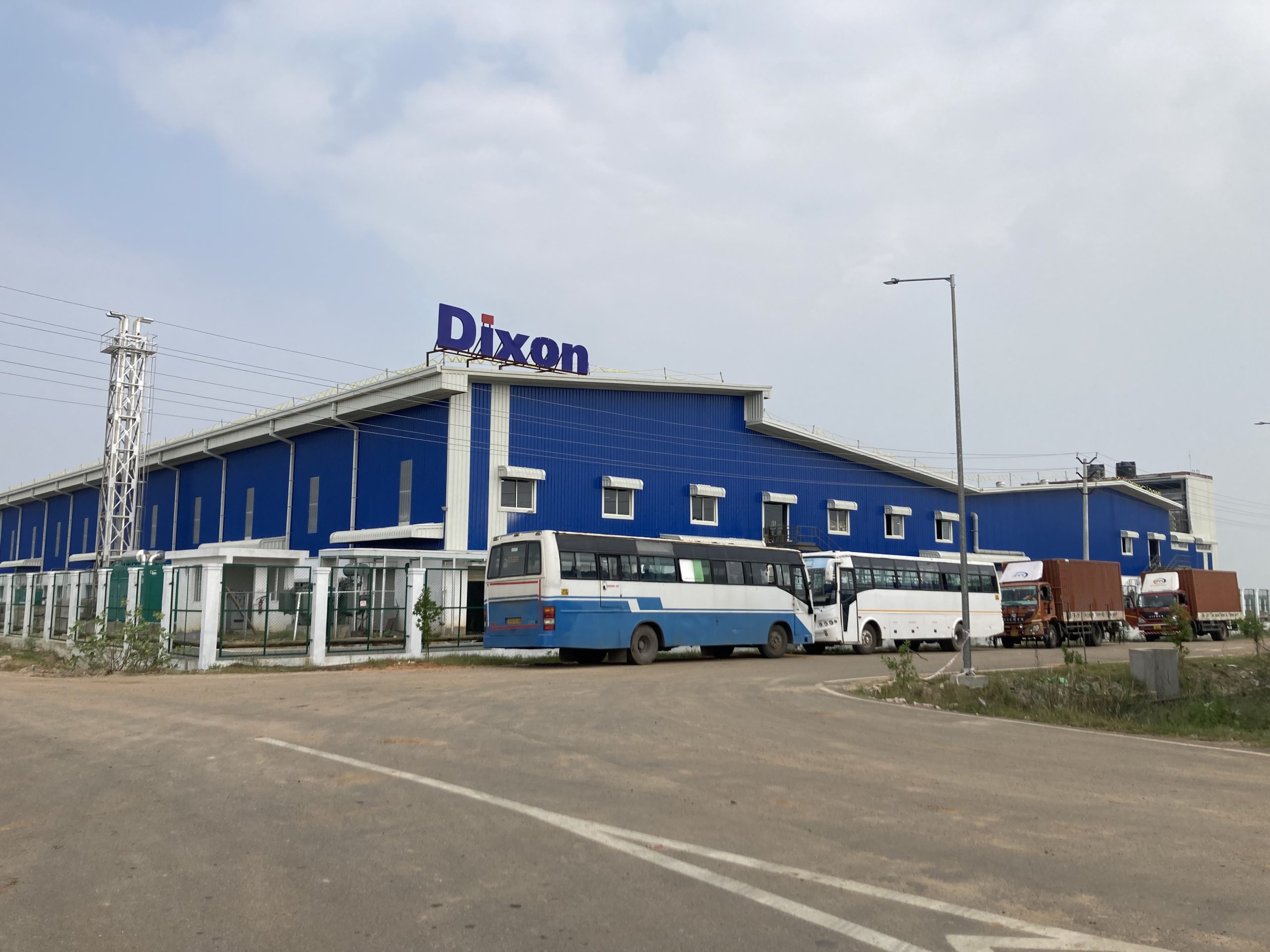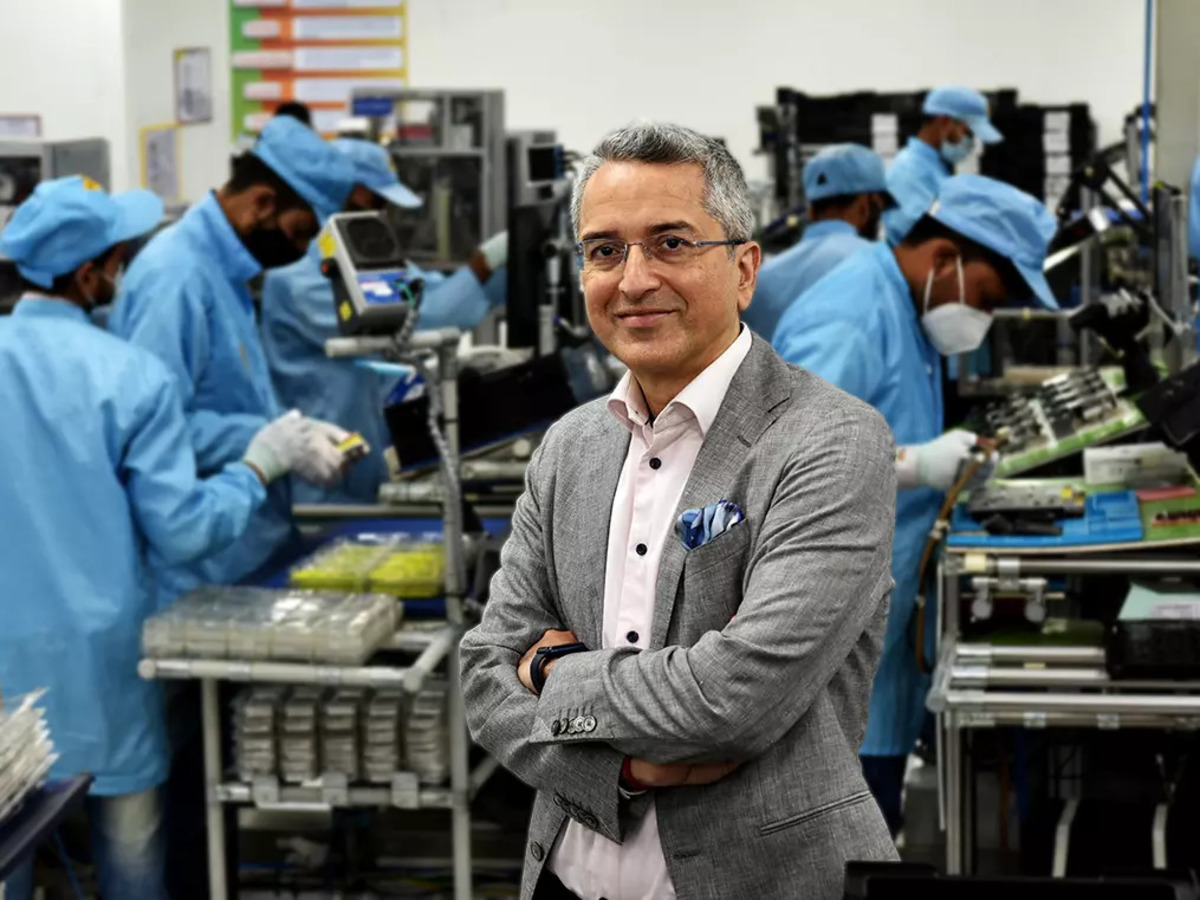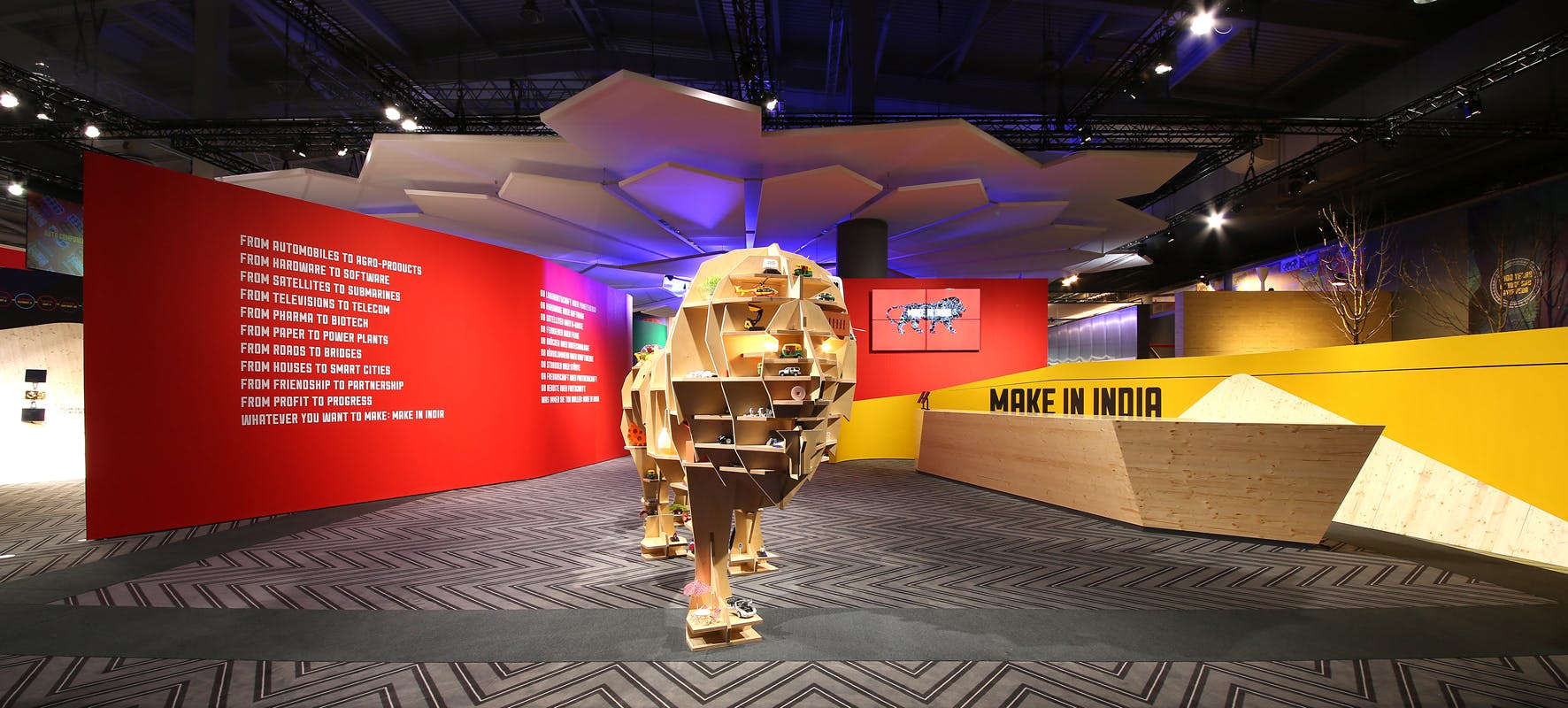Dixon Technologies Expands in 2023 as a Result of the Make-in-India Movement

Dixon Technologies Expands in 2023 as a Result of the Make-in-India Movement
Sunil Vachani is currently in an exuberant frame of mind. The founder-chairman of Noida-based Dixon Technologies tweeted that the “landmark” step will turn India into a “manufacturing hub for the world” a day after the government decided to restrict imports of IT gear last week.
It makes sense why there is so much zeal. Vachani, recognized by Dataquest magazine as “India’s Rs Aatma Nirbhar Champion,” would undoubtedly profit from the government’s action, which has now been postponed till November 1. Dixon expects its order books to fill up due to the import restrictions, which are intended to encourage many Indian businesses to move to domestic production.

From Rs 2,853 crore in FY18 to Rs 12,192 crore in FY23, Dixon’s income increased more than four times. Additionally, Jefferies predicts that over the next three years, this will grow more than three times. That’s fantastic news for Vachani, who in 1993 founded Dixon to produce televisions with a loan of Rs 20 lakh from his father.
After the government’s declaration on Thursday, the stock market understands which way the wind is blowing, so Dixon’s share price increased by as much as 12% to Rs 4,618.50 in the previous two sessions. It reached a 52-week high of Rs 4,813 on Friday.
The government’s Make-in-India initiatives in the industries Dixon works in have been ongoing; Thursday’s action was only the most recent. The productivity-linked programmes for lights, mobile devices, telecom items, IT hardware, air conditioners, and wearables have greatly benefited the electronics producer.
The company’s IT hardware division will be mainly responsible for the significant revenue rise. This division’s contribution to the company’s overall top line of Rs 3,272 crore during the April–June quarter was roughly 3%. Acer is its main client in the laptop industry, where the company now sells items. The firm and Dell and Bhagwati (Micromax) qualified for the FY22 incentives and benefited from the preceding IT Hardware PLI scheme.

Dixon is attempting to submit its bids for the revised Rs 17,000-crore IT Hardware PLI programme.
Optiemus Electronics, which entered the laptop industry to produce computers for Primebook, is also considering expanding capacity. One of the biggest contract manufacturers for brands including Noise, Boult Audio, and Harman, the firm produces hearables and wearables. Another beneficiary of the smartphone PLI programme is Optiemus.
During the business’s earnings call, Dixon Technologies’ managing director and vice-chairman, Atul Lall, stated that the company is in advanced talks with several major international brands (in laptops and tablets). “We are hopeful that these conversations will be fruitful and lead to business,” the statement reads.
Industry executives claim that Dixon is discussing with Reliance Retail to manufacture the JioBook laptop in the same way it produces JioBharat phones for Reliance Jio.
Dixon could also take advantage of advantages under the revised Rs 17,000 crore IT Hardware PLI plan because of the rise in contract manufacturing in the laptop and PC market.
Lall continued, “We will, without a doubt, participate in this plan. The government just established a redesigned PLI scheme for IT Hardware items with increased incentive payout.

The government has focused on boosting domestic manufacturing, bolstering the domestic value chain, and expanding value addition since 2020. Thus, this is another move towards promoting indigenization, according to brokerage firm Jefferies.
As it satisfied 30% of the industry demand, Dixon also profited greatly when the government August 2020 prohibited imports of LED televisions in India.
The business has changed its focus from providing prescription manufacturing services to becoming an original design manufacturer (ODM) of intelligent TVs. This indicates that the company has begun creating television designs for the Google platform, and other businesses can now request them to produce televisions.
Dixon, which sold 7.1 million televisions in the June quarter, has customers in the television market firms like Samsung, Tizen, and Xiaomi. Television is a part of the consumer electronics sector, which accounts for around 27% of Dixon’s sales.
Dixon is a significant feature phone and smartphone contract maker that works with businesses including Motorola, Samsung, Nokia, Xiaomi, Itel, and others.
“In comparison to at least 1 million in Q1 (April-June), we have received a more significant order book from Motorola for 1.3 million to 1.5 million handsets in July-September. We anticipate an increase in volume to 2 million units each quarter, including some sizable export orders from Q3, according to Lall, who also stated that Xiaomi smartphone production is anticipated to begin in late September or early October.
The firm estimates selling 15 million Jio Bharat phones will bring in Rs 1,500 crores.

Dixon’s mobile and EMS (electronic manufacturing services) business revenue increased 38% year over year to Rs 1,795 crore in April–June. Most of the company’s revenue, or around 55%, comes from the business.
Only Dixon has been eligible for rewards under the smartphone PLI for three years among domestic firms.
The Make-in-India initiative has taken another step forward, effectively changing the landscape of the manufacturing sector, with one company that stands out from the crowd: Dixon Technologies. The Noida-based Electronics Manufacturing Services (EMS) company has surged in popularity, riding on the wave of this initiative that aims to boost local production and reduce imports.
Dixon Technologies is a leading player in India’s electronic goods manufacturing industry. Since its inception in 1993, the company has grown exponentially, specializing in manufacturing consumer electronics, home appliances, lighting, and mobile phones.
The Make-in-India initiative, a brainchild of the Indian government to bolster the domestic industry, has fueled Dixon’s impressive growth trajectory.
The company’s financial performance in 2023 has notably demonstrated the advantages of the Make-in-India initiative. Dixon’s revenues rose sharply, and the company expanded its operations, investing significantly in research and development and in developing its manufacturing capacities.

This growth has been fueled by the domestic demand for electronics, which has increased significantly due to government policies encouraging local production.
Several government initiatives have significantly enhanced Dixon Technologies’ position in the market. For instance, the Production Linked Incentive (PLI) scheme was a game-changer. Introduced to promote domestic manufacturing and exports, this policy incentivizes companies to increase sales from products manufactured in household units. With its solid domestic manufacturing capabilities, Dixon Technologies has reaped substantial benefits from this scheme.
Additionally, the imposition of import restrictions on certain electronic goods has tilted the balance in favour of domestic manufacturers. With these restrictions in place, many brands have partnered with Dixon for their manufacturing needs instead of importing finished products.
Dixon has gradually moved up the value chain from being a pure-play EMS provider to an Original Design Manufacturer (ODM), offering comprehensive solutions, including product design, testing, and after-sales services. This move has enabled Dixon to differentiate itself, secure long-term contracts, and increase its profit margins.
The company’s focus on research and development has been instrumental in this transformation. Dixon has also successfully leveraged its strong relationships with global technology leaders to gain access to advanced technologies and designs, allowing it to provide high-quality products to its customers.
In 2023, Dixon moved significantly by entering the Electric Vehicle (EV) components manufacturing sector. With the Indian government pushing for EV adoption and introducing favourable policies, the demand for EV components is set to rise dramatically in the coming years. Dixon’s move into this sector positions it to exploit this growth.
Overall, Dixon Technologies’ growth story serves as a prime example of the potential of the Make-in-India initiative. By aligning with government policies, investing in technological capabilities, and moving into high-growth sectors like EVs, Dixon is poised to continue its growth trajectory in the future. In the process, it contributes to India’s economic growth and demonstrates the opportunities that can be unleashed through strategic local manufacturing.





